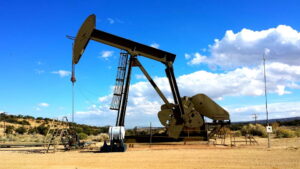Tag: oil
Bursting the PC Bubble: Attack on Saudi Arabian Oil Production Affects U.S. Relations
by The Cowl Editor on September 19, 2019
National and Global News

by Brian Garvey ’20
News Staff
Early Saturday morning, a major attack on Saudi Arabia’s oil production sent ripples through the global economy. Coordinated drone strikes targeted two crude processing facilities, one of which, operated by Aramco, is the world’s largest processing plant.
The attacks created a devastating chain of fires that severely damaged or destroyed nearly half of Saudi’s oil production— 5 percent of the global daily output. The attack sent crude oil prices skyrocketing by 15 percent on Monday, the largest gain recorded in 30 years.
Yemen’s Houthi rebels claimed responsibility for the attack, announcing that they conducted the strikes using 10 drones to retaliate against Saudi Arabia’s military in Yemen. However, the U.S. cast serious doubt on the Houthi declaration, with U.S. intelligence strongly indicating that Iran was the staging ground.
The U.S. shared their assessment of the attack with Saudi Arabia, stating that Iran launched a combination of more than 20 drones and cruise missles, according to CBS. The Wall Street Journal now says Saudi Arabia is “increasingly confident” that Iran launched the attack.
The Saudi military presented its own assessment of the attack on Monday, stating that the weapons used in the attack were definitively Iranian made. However, despite dismissing the claims of responsibility by the Houthis, the report failed to name anyone responsible. Unless Saudi Arabia is presented with enough evidence to prove the Iranians responsible, the U.S. will have trouble garnering support for a response to these attacks.
Iran has vehemently denied involvement in the attack, instead calling this an act of “self-defense” by the rebels in Yemen.
Iranian Foreign Minister Mohammad Javad Zarif tweeted, “Having failed at ‘max pressure’, @SecPompeo’s turning to ‘max deceit.’ The U.S. & its clients are stuck in Yemen because of illusion that weapon superiority will lead to military victory. Blaming Iran won’t end [this] disaster. Accepting our April ’15 proposal to end war & begin talks may.”
On Monday, Iranian President Hassan Rouhani said, “Every day, Yemen is being bombed and peaceful civilians are dying. When security is restored in Yemen, then it will be possible again to produce oil safely in [Saudi Arabia].”
President Trump is currently weighing his options for retaliation, as it has been made clear that both Saudi Arabia and the U.S. do not want war with Iran. Robert Malley, president of the International Crisis Group and former White House coordinator for the Middle East under President Obama, said, “Both President Trump and [Crown Prince] Mohammed bin Salman feel the need to respond but neither wants war. The question is how they achieve the former without provoking the latter.”
NBC reports that a congressional source says Democrats familiar with the details of this attack do not dispute that Iran was the perpetrator. “This attack had a level of sophistication we have not seen before,” the congressional source said. “You will not see Democrats pushing back on the idea that Iran was behind it.”
The Wall Street Journal has reported the strikes knocked out 5.7 million barrels of daily production. Saudi officials have said that they should resume one-third of normal output by Monday, but many experts say that it will take “weeks, not days” to reach full capacity.
“This could take a longer time than the authorities initially are claiming. Despite lower exports this year, Saudi Arabia has also depleted its crude oil stocks to the lowest levels in 10 years, so the country alone does not have the same robustness to Middle East interruptions as it used to have,” wrote Bjørnar Tonhaugen, head of oil market analysis at Rystad Energy.
Additionally, Tonhaugen said he doubts that the U.S. will be able to completely prevent a price surge. “Also, the U.S. cannot quickly replace this volume, as it takes time to relocate oil tankers, and the U.S. still has limited export capacity by Very Large Crude Carriers, (known as VLCCs).”
While U.S. oil production has risen significantly in the past decade (now the second largest producer of oil in the world), many experts have expressed serious concern that this will not be enough in the long term.
President Trump, as well as other officials within the government, see this attack as an effort to manipulate the markets and economy of the U.S. in retaliation for the strict sanctions placed on Iran last year.
With the United Nations General Assembly taking place in New York this week, the timing of these attacks has opened up a serious space for debate over sanctions, repercussions, and retaliation.
Although the Iranians have refused to meet directly with President Trump while sanctions are still in place, these recent attacks will undoubtedly bethe center of global debate.
